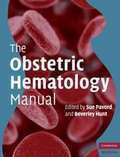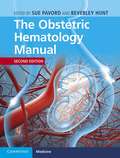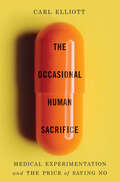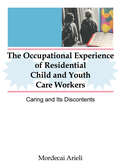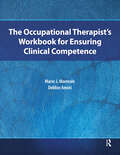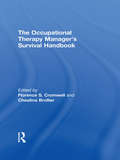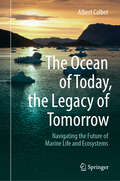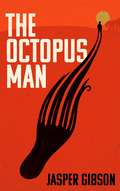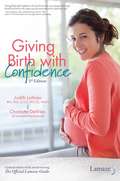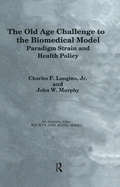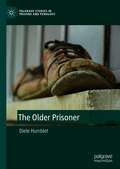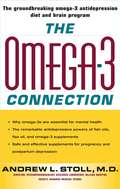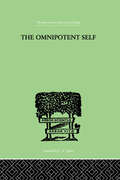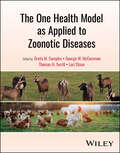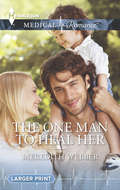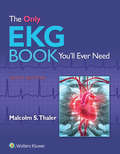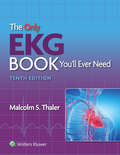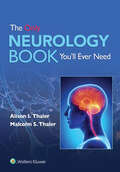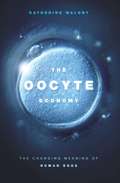- Table View
- List View
The Observable Universe: An Investigation
by Heather McCaldenIs anyone ever truly lost in the internet age? A moving, original memoir of a young woman reckoning with her parents&’ absence, the virus that took them, and what it means to search for meaning in a hyperconnected world.&“Brilliantly innovative . . . syncing a narrative of profoundly personal emotion with the invention and evolution of today&’s cyberspace.&”—William Gibson, author of Neuromancer and The PeripheralIn the early 1990s, Heather McCalden lost both her parents to AIDS. She was seven when her father died, ten when she lost her mother. Raised by her grandmother, Nivia, she grew up in Los Angeles, also known as ground zero for the virus and its destruction.Years later, she begins researching online the history of HIV as a way to deal with her loss, which leads her to the unexpected realization that the AIDS crisis and the internet developed on parallel timelines. By accumulating whatever fragments she could about both phenomena—images, anecdotes, and scientific entries—alongside her own personal history, McCalden forms a synaptic journey of what happened to her family, one that leads to an equally unexpected discovery about who her parents might have been.Entwining this personal search with a wider cultural narrative of what the virus and virality mean in our times—interrogating what it means to &“go viral&” in an era of explosive biochemical and virtual contagion—The Observable Universe is at once a history of our viral culture and a prismatic account of grief in the internet age.
The Obstetric Hematology Manual
by Sue Pavord Beverley HuntObstetric hematology is a fast-growing area of medicine covering the diagnosis and management of hematological problems of pregnancy. Comprehensive in approach, The Obstetric Hematology Manual addresses the many hematological conditions that can cause serious problems in pregnancy, delivery and the post-partum period for both mother and baby. Written by a team of international authorities, this text provides up-to-date, evidence-based guidelines on best care, as well as sound advice based on the experience and opinion of experts. Where appropriate, basic principles are discussed to clarify the rationale for management, and systems and procedures for disease prevention are highlighted. Many conditions and cases are discussed, including venous thromboembolism, pre-eclampsia, anemia, thrombocytopenia and inherited disorders. This book will appeal to both trainees and practitioners in obstetrics, obstetric medicine, obstetric anesthesia and hematology. It is also an accessible text for midwives, nurses, and laboratory staff.
The Obstetric Hematology Manual
by Sue Pavord Beverley HuntObstetric hematology is a fast-growing area of medicine covering the diagnosis and management of hematological problems of pregnancy. Comprehensive in approach, The Obstetric Hematology Manual addresses the many hematological conditions that can cause serious problems in pregnancy, delivery and the post-partum period for both mother and baby. Written by a team of international authorities, this text provides up-to-date, evidence-based guidelines on best care, as well as sound advice based on the experience and opinion of experts. Where appropriate, basic principles are discussed to clarify the rationale for management, and systems and procedures for disease prevention are highlighted. Many conditions and cases are discussed, including venous thromboembolism, pre-eclampsia, anemia, thrombocytopenia and inherited disorders. This book will appeal to both trainees and practitioners in obstetrics, obstetric medicine, obstetric anesthesia and hematology. It is also an accessible text for midwives, nurses, and laboratory staff.
The Occasional Human Sacrifice: Medical Experimentation and the Price of Saying No
by Carl ElliottShocking cases of abusive medical research and the whistleblowers who spoke out against them, sometimes at the expense of their careers. The Occasional Human Sacrifice is an intellectual inquiry into the moral struggle that whistleblowers face, and why it is not the kind of struggle that most people imagine. Carl Elliott is a bioethicist at the University of Minnesota who was trained in medicine as well as philosophy. For many years he fought for an external inquiry into a psychiatric research study at his own university in which an especially vulnerable patient lost his life. Elliott’s efforts alienated friends and colleagues. The university stonewalled him and denied wrongdoing until a state investigation finally vindicated his claims. His experience frames the six stories in this book of medical research in which patients were deceived into participating in experimental programs they did not understand, many of which had astonishing and well-concealed mortality rates. Beginning with the public health worker who exposed the Tuskegee Syphilis Study and ending with the four physicians who in 2016 blew the whistle on lethal synthetic trachea transplants at the Karolinska Institute, Elliott tells the extraordinary stories of insiders who spoke out against such abuses, and often paid a terrible price for doing the right thing.
The Occupational Experience of Residential Child and Youth Care Workers: Caring and Its Discontents
by Jerome Beker Mordecai ArieliFrom open and straightforward accounts of residential care workers, The Occupational Experience of Residential Child and Youth Care Workers shows you how care is handled, not how it should be handled. This book introduces you to a social reality, a sometimes very difficult and challenging social reality, as it is viewed by its participants. If you want to know more about what is actually going on in residential care and the discontent that workers frequently experience, this is the book that lays out the facts, the problems, and the nature of residential youth centers.The Occupational Experience of Residential Child and Youth Care Workers broaches the problem of tension between workers and residents and hopes that bringing the problem out into the open will be a first step toward a solution. You learn that the very arrangement of residential care automatically sets up antagonism between the sole group care worker and his/her wards; residents tend to resist the inherently coercive efforts of the worker who tries to bring them through processes of change and socialization. The Occupational Experience of Residential Child and Youth Care Workers will make you think about: residential care and conflicts group interaction career satisfaction and dissatisfaction interpretive sociology of education and its methodology social controlInterviews with Israeli residential care workers are presented to help you understand the circumstances under which residential care providers experience discontent, or job dissatisfaction. You learn which workers are most likely to feel discontented and how staff members cope with the stress and discontent they experience. Youth care workers, policymakers, child-care staff recruiters, supervisors, and trainers will find this book sheds much light on the problem of discontent and the need to make child and youth care facilities more humane for residents and staff alike. It will also help social work educators and researchers in sociology, social work, and the social psychology of education get in touch with what goes on inside the walls of residential care centers.
The Occupational Therapist’s Workbook for Ensuring Clinical Competence
by Marie Morreale Debbie AminiThe Occupational Therapist’s Workbook for Ensuring Clinical Competence is designed to help occupational therapy students and new practitioners demonstrate the practical problem-solving and real-life clinical reasoning skills essential for fieldwork and clinical practice. This user-friendly resource helps the reader apply occupational therapy concepts, improve narrative and pragmatic reasoning skills, and measure attainment of knowledge and skills needed for successful transition to fieldwork and entry-level practice.Inside The Occupational Therapist’s Workbook for Ensuring Clinical Competence, a wide variety of client conditions, situations, and intervention options are presented for different practice areas. Knowledge and skills are assessed for fundamental aspects of occupational therapy such as: professionalism, ethical decision-making, evidence-based practice, evaluation and intervention planning, occupation-based interventions, effective communication, supervision, role delineation, activity analysis, cultural competence, interprofessional collaboration, group process, emerging practice areas, department management, safety, documentation, billing and reimbursement, and more.Marie Morreale and Debbie Amini have incorporated numerous worksheets, learning activities, and worksheet answers in an easy-to-read format. The variety of assessment methods and learning activities used throughout the text stem from the authors' combined decades of teaching experience and include: case studies; vignettes; multiple choice, matching and true/false questions; fill in the blanks; experiential activities and more. Topics are broken down into smaller units and explained step-by-step to allow for easy independent study.Thoroughly explained answers are provided so that readers can check their responses with suggested best practice.These worksheets and learning activities are also useful as role-playing exercises, studying in small groups, and can aid in preparing for fieldwork or the national certification exam.Included with the text are online supplemental materials for faculty use in the classroom.The Occupational Therapist’s Workbook for Ensuring Clinical Competence is the go-to text for occupational therapy students and faculty, as well as new occupational therapy practitioners who require the practical problem-solving skills and the clinical decision-making skills essential for fieldwork and clinical practice.
The Occupational Therapy Managers' Survival Handbook: A Case Approach to Understanding the Basic Functions of Management
by Florence S Cromwell Chestina BrollierThis practical volume, in a casebook approach, was developed in response to the complex issues that today&’s manager faces. As therapists assume managerial responsibilities, there is need to share experiences and lessons learned. In this volume, a common format is used to present each case, including chronology of events, alternatives considered, risks involved, and outcomes. Several chapters include valuable resource materials as well. Key concerns are addressed, such as justifying more therapist staff, evaluating staff performance, collecting and analyzing cost data to establish fees, weighing ethical and liability concerns, and teaching students about their future responsibilities. The Occupational Therapy Manager&’s Survival Handbook provides useful material for any therapist who wishes to examine and strengthen his or her role as a manager.
The Ocean of Today, the Legacy of Tomorrow: Navigating the Future of Marine Life and Ecosystems
by Albert CalbetThe Ocean of Today, The Legacy of Tomorrow takes you on an eye-opening journey through the intricate, fragile, and vital marine environments that sustain life on Earth. This comprehensive exploration uncovers the far-reaching impacts of climate change, overfishing, pollution, and habitat destruction on marine biodiversity. With insights into the latest scientific advancements, technological innovations, and conservation strategies, the book delves into the critical choices humanity faces in safeguarding the ocean&’s future. Engaging, informative, and forward-thinking, it challenges readers to rethink our relationship with the ocean and highlights the urgent need for sustainable action to protect this indispensable resource.
The Octopus Man
by Jasper Gibson'An exceptional work . . . A brilliant and necessary book' Douglas Stuart, author of the Booker Prize-winning SHUGGIE BAIN'THE OCTOPUS MAN reminds us that behind the words "mental health" lies a universe of WILD CREATIVITY, HUMANITY and SPANKING BIG LIFE. Now is the time for this book.' DBC Pierre, author of the Booker Prize-winning VERNON GOD LITTLE'Funny. Disturbing. Brilliant' Lily Allen'A joy to read' Johnny FlynnOnce an outstanding law student Tom is now lost in the machinery of the British mental health system, talking to a voice no one else can hear: the voice of Malamock, the Octopus God - sometimes loving, sometimes cruel, but always there to guide him through life.After a florid psychotic break, the pressure builds for Tom to take part in an experimental drugs trial that promises to silence the voice forever. But no one, least of all Tom, is prepared for what happens when the Octopus God is seriously threatened.Deeply moving and tragi-comic, THE OCTOPUS MAN takes us into the complex world of voice-hearing in a bravura literary performance that asks the fundamental questions about belief, meaning, and love.
The Official Lamaze Guide: Giving Birth With Confidence
by Charlotte Devries Judith LothianSafe and Healthy Birth... Your Way! Finally, a book that tells you what to expect, not what to fear, during pregnancy and birth! The Official Lamaze Guide is the first and only pregnancy and childbirth guide endorsed by Lamaze International, the leading childbirth education organization in North America. Its goal is to take the mystery out of having a baby and help you better understand how your body works during pregnancy and childbirth, giving you the confidence to make decisions that best ensure the safety and health of you and your baby. Written in plain English with a respectful, positive tone, this book presents: how pregnancy and birth progress naturally, information on choosing your maternity care provider and place of birth, the best available medical evidence to help you make informed decisions, steps you can take to alleviate fear and manage pain during labor, and practical strategies to help you work effectively with your care provider. This book is an essential resource for all expectant parents who want to make decisions they can feel confident aobut for a safe, healthy pregnancy and birth, and the best start for their baby. The Official Lamaze® Guide is a celebrated winner of an iParenting Media Award.
The Old Age Challenge to the Biomedical Model: Paradigm Strain and Health Policy (Society and Aging Series)
by Charles F. LonginoCentral to this book is the idea that the United States is in the midst of a health care crisis, one that will be exacerbated as the population continues to age. Longino and Murphy trace the philosophical and technological development of the biomedical model and show its inadequacy to deal with the massive chronic disease demand of the present and the future. They argue that the delivery of health care will meet and survive the old age challenge only if the medical system is thoroughly democratized. A more inclusive system must be devised that encourages a more reasonable allocation of resources, gives more attention to prevention, adopts a wider range of non-medical interventions, and invites citizens to become more involved in their own health care and the planning of services.
The Older Prisoner (Palgrave Studies in Prisons and Penology)
by Diete HumbletThis book critically explores the world of older prisoners to provide a more nuanced understanding of imprisonment at old age. Through an ethnographical study of male and female older prisoners in two Belgian prison settings, one in which older prisoners are integrated and one in which they are segregated, it informs debates and seeks to recognise ageist discourse, attitudes, practices in prison. The Older Prisoner seeks to situate the older prisoner from both a penological and gerontological perspective, organised around the following broad themes: the construction of the older prisoner, the physical prison world, the social prison world, surviving prison and giving meaning. The book allows readers to navigate between contrasting perspectives and voices rather than reinforcing traditional narratives and prevailing discourses on the older prisoner. In doing so, it hopes to open up a broader dialogue on ageing and punishment. It also offers insights into the concept of meaning in life as an analytical tool to study prisoners.
The Olfactory System (Methods in Molecular Biology #2710)
by Bradley J. Goldstein Hiroaki MatsunamiThis volume discusses the latest approaches used to investigate molecular biology and physiology in the peripheral and central olfactory system. Understanding both normal function and pathobiology provides readers with insight into understanding human olfactory disorders. The chapters in this book cover topics such as techniques for manipulating and measuring olfactory cilia function; approaches for investigating spatial RNA expression in olfactory mucosa; the use of chromatin immunoprecipitation with olfactory neurons; in vivo methods to label and identify activated olfactory neurons; defining organization in the olfactory bulbs and cortex; and the use of optical recording in the mouse olfactory bulb for acute or chronic experiments. Written in the highly successful Methods in Molecular Biology series format, chapters include introductions to their respective topics, lists of the necessary materials and reagents, step-by-step, readily reproducible laboratory protocols, and tips on troubleshooting and avoiding known pitfalls.Thorough and cutting-edge, The Olfactory System: Methods and Protocols is a valuable resource for all researchers who are interested in learning more about this important and developing field.
The Omega-3 Connection
by Andrew StollFor years scientists have searched for a "magic bullet" to relieve the pain of depression and other mood disorders -- safe enough for nursing mothers, children with ADHD, and the elderly, without the side effects associated with medicines like Prozac, Zoloft, and lithium. Now the search may finally be over, thanks to the Omega-3 Renewal Plan, introduced here by Andrew L. Stoll, M.D., Director of the Psycho-pharmacology Research Laboratory at Harvard's McLean Hospital. In his groundbreaking research, Stoll found that omega-3 fatty acids, already known for their importance in preventing heart disease, Crohn's disease, rheumatoid arthritis, and cancer, play a crucial role in mental health -- regulating and en-hancing mood, sharpening memory, and even aiding concentration and learning. And these remarkable substances, so essential to our health, are found abundantly in common fish oils and other sources. The bad news is that even though omega-3 fatty acids have played a critical role in our evolutionary past, these extraordinary substances have been depleted by our Western diet and lifestyle, and the resulting nutritional imbalance seems to have led to a sharp rise in heart disease and depression. By contrast, in Japan and other countries where fish consumption is high, both heart disease and depression rates are low. Stoll explains how easily omega-3s can be used up in just a few generations, and how a new mother with depleted omega-3s loses still more to her baby -- a fact that may account for the severe postpartum depression so many women suffer. He documents evidence that a shortage of omega-3s may also play a role in attention deficit-hyperactivity disorder (ADHD) and other learning problems. The good news is that this downward spiral of depletion and depression can finally be reversed. In his revolutionary Omega-3 Renewal Plan, Dr. Stoll presents readers for the first time with all the tools for restoring their natural balance of omega-3 fatty acids, including which foods to eat and how to choose the most effective over-the-counter supplements. Featuring information on how to integrate flaxseed and fish oils into diet and medication plans, and including simple recipes as well as supplement dosages and sources, The Omega-3 Connection offers an entirely new, practical method for improving mental health.
The Omnipotent Self: A STUDY IN SELF-DECEPTION AND SELF-CURE
by Bousfield, PaulFirst Published in 1999. Routledge is an imprint of Taylor & Francis, an informa company.
The Omnivorous Mind: Our Evolving Relationship with Food
by John S. AllenIn this gustatory tour of human history, Allen suggests that the everyday activity of eating offers deep insights into our cultural and biological heritage. Beginning with the diets of our earliest ancestors, he explores eating's role in our evolving brain before considering our contemporary dinner plates and the preoccupations of foodies.
The One Health Model as Applied to Zoonotic Diseases
by Oreta M. Samples George W. McCommon Thomas H. Terrill Lori L. StoseComprehensive, easy-to-understand, and clinically relevant guide to zoonotic healthcare concerns in North America The One Health Model as Applied to Zoonotic Diseases is an easy-to-understand yet comprehensive explanation of zoonotic healthcare concerns with coverage of diseases and medical conditions seen in North America. With a format that is consistent throughout each chapter, this book provides clinically relevant information on individual diseases, causative agents, symptomatology, diagnostics, and treatment and preventative strategies. This book also offers an overview of the history of One Health and perspective on the future of One Health in North America The One Health Model as Applied to Zoonotic Diseases covers sample topics including: Arthropod-Borne Diseases, tapeworms, rabbit fever, rickettsia spp., leishmaniasis, chiggers, red bird mite, and mange Equine encephalitis, St. Louis encephalitis, West Nile Virus, Zika, American spotted fever, babesia, bourbon virus, Colorado tick fever, and heartland virus Lyme disease, Powassan encephalitis, Q-Fever, Rocky Mountain spotted fever, swimmer's itch, and bacterial zoonotic disease Anthrax, cat scratch fever, campylobacteriosis, leptospirosis, psittacosis, salmonella, staphylococcus, tuberculosis, rat bite fever, hookworms, and intestinal flukes Newcastle disease, avian and swine influenza, foot-and-mouth disease, and creeping eruption The One Health Model as Applied to Zoonotic Diseases is an essential textbook for veterinary technology and animal science students seeking to work as paramedical professionals in the fields of agriculture and veterinary medicine. It also serves as an ideal reference guidebook for both human and veterinary practitioners.
The One Man to Heal Her
by Meredith WebberSingle dad to her rescue! Dr. Alexandra Hudson's homecoming is bittersweet. She's still scarred by her family's rejection, and it's a comfort to find her childhood friend Will Kent. Except she's overwhelmed by her attraction to the handsome widower-feelings she never expected to have again! Will is shocked that the gorgeous new cardiologist is the girl from next door. He's also shocked by his desire to keep her safe in his arms! But now he has a toddler to protect, too. He'll gladly offer Alex a whole new life...if she'll risk being part of a brand-new family!
The One-Sex Body on Trial: The Classical And Early Modern Evidence (The History of Medicine in Context)
by Helen KingBy far the most influential work on the history of the body, across a wide range of academic disciplines, remains that of Thomas Laqueur. This book puts on trial the one-sex/two-sex model of Laqueur's Making Sex: Body and Gender from the Greeks to Freud through a detailed exploration of the ways in which two classical stories of sexual difference were told, retold and remade from the mid-sixteenth to the nineteenth century. Agnodike, the 'first midwife' who disguises herself as a man and then exposes herself to her potential patients, and Phaethousa, who grows a beard after her husband leaves her, are stories from the ancient world that resonated in the early modern period in particular. Tracing the reception of these tales shows how they provided continuity despite considerable change in medicine, being the common property of those on different sides of professional disputes about women's roles in both medicine and midwifery. The study reveals how different genres used these stories, changing their characters and plots, but always invoking the authority of the classics in discussions of sexual identity. The study raises important questions about the nature of medical knowledge, the relationship between texts and observation, and the understanding of sexual difference in the early modern world beyond the one-sex model.
The Only Child: The terrifying thriller that will blow your mind
by Andrew Pyper'One of the most talented successors to Stephen King' DAILY MAILA psychotic patient with two impossible claims. A leading forensic psychiatrist on the edge. It's not just Dr. Dominick's career that's in danger...Forensic psychiatrist Dr. Lily Dominick has evaluated the mental states of some of the country's most dangerous psychotics. But today's client - a man with no name, accused of the most twisted crime - struck her as different from the others, despite the two impossible claims he made.First, that he is more than two hundred years old and personally inspired Bram Stoker, Mary Shelley and Robert Louis Stevenson in creating the three novels of the nineteenth-century that define the monstrous in the modern imagination. Second, that he's her father.To discover the truth behind her client, Dr. Dominick must embark on a journey that will threaten her career, her sanity, and ultimately her life.Taut, terrifying and impossible to put down, The Only Child is perfect for fans of Lauren Beukes and Stephen King.Praise for Andrew Pyper:'One of the most talented successors to Stephen King' - DAILY MAIL'A smart, thrilling, utterly unnerving novel' - GILLIAN FLYNN, author of Gone Girl'Pyper is a master architect of dread' - LAUREN BEUKES, author of The Shining Girls'Genuinely terrifying' - SJ WATSON, author of Before I Go To Sleep'Readers will undoubtedly make comparisons to Stephen King' LIBRARY JOURNAL
The Only Child: The terrifying thriller that will blow your mind
by Andrew Pyper'One of the most talented successors to Stephen King' DAILY MAILA psychotic patient with two impossible claims. A leading forensic psychiatrist on the edge. It's not just Dr. Dominick's career that's in danger...Forensic psychiatrist Dr. Lily Dominick has evaluated the mental states of some of the country's most dangerous psychotics. But today's client - a man with no name, accused of the most twisted crime - struck her as different from the others, despite the two impossible claims he made.First, that he is more than two hundred years old and personally inspired Bram Stoker, Mary Shelley and Robert Louis Stevenson in creating the three novels of the nineteenth-century that define the monstrous in the modern imagination. Second, that he's her father.To discover the truth behind her client, Dr. Dominick must embark on a journey that will threaten her career, her sanity, and ultimately her life.Taut, terrifying and impossible to put down, The Only Child is perfect for fans of Lauren Beukes and Stephen King.Praise for Andrew Pyper:'One of the most talented successors to Stephen King' - DAILY MAIL'A smart, thrilling, utterly unnerving novel' - GILLIAN FLYNN, author of Gone Girl'Pyper is a master architect of dread' - LAUREN BEUKES, author of The Shining Girls'Genuinely terrifying' - SJ WATSON, author of Before I Go To Sleep'Readers will undoubtedly make comparisons to Stephen King' LIBRARY JOURNAL
The Only EKG Book You'll Ever Need (Board Review Ser.)
by Malcolm ThalerClear and concise, The Only EKG Book You'll Ever Need has provided quick and accurate discussions on using an EKG to diagnose cardiac and non-cardiac conditions for nearly 30 years. This ninth edition is packed with full-color illustrations, real-world clinical scenarios, and step-by-step instructions—giving you the practical guidance you need to use an EKG in actual clinical settings with patients.
The Only EKG Book You’ll Ever Need
by Malcolm S. ThalerFor more than 30 years, health care providers have turned to The Only EKG Book You’ll Ever Need for Dr. Malcolm S. Thaler’s clear and concise guidance on EKG use in everyday practice. Ideal for readers at all levels of experience, the tenth edition of this straightforward, highly visual resource presents must-know information on using an EKG to diagnose cardiac and non-cardiac conditions, with numerous EKG strips, clear illustrations, clinical examples, and case studies throughout. From cover to cover, Dr. Thaler’s commitment to “keeping simple things simple and making complicated things easy to understand” helps you learn and understand how to best use an EKG in actual clinical settings.
The Only Neurology Book You'll Ever Need
by Alison I. Thaler Malcolm S. ThalerClear and concise, The Only Neurology Book You'll Ever Need provides a straightforward and comprehensive overview of neurology. It covers all of the important neurologic diagnosis and management issues, along with clinically relevant anatomy and physiology. Written by Drs. Alison I. Thaler and Malcolm S. Thaler, this new title is packed with full-color illustrations, real-world clinical scenarios, and up-to-date guidelines and recommendations —giving you all the practical advice you need to master the challenging world of neurology.
The Oocyte Economy: The Changing Meaning of Human Eggs
by Catherine WaldbyIn recent years increasing numbers of women from wealthy countries have turned to egg donation, egg freezing, and in vitro fertilization to become pregnant, especially later in life. This trend has created new ways of using, exchanging, and understanding oocytes—the reproductive cells specific to women. In The Oocyte Economy Catherine Waldby draws on 130 interviews---with scientists, clinicians, and women who have either donated or frozen their oocytes or received those of another woman---to trace how the history of human oocytes' perceived value intersects with the biological and social life of women. Demonstrating how oocytes have come to be understood as discrete and scarce biomedical objects open to valuation, management, and exchange, Waldy examines the global market for oocytes and the power dynamics between recipients and the often younger and poorer donors. With this exploration of the oocyte economy and its contemporary biopolitical significance, Waldby rethinks the relationship between fertility, gendered experience, and biomedical innovation.

